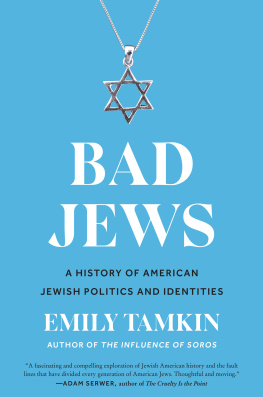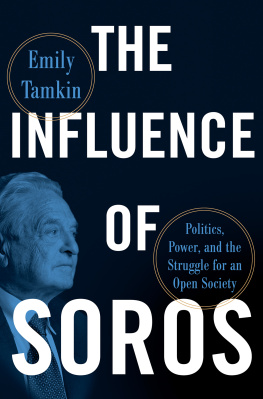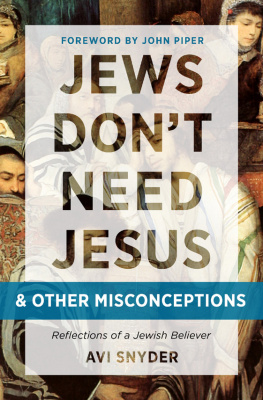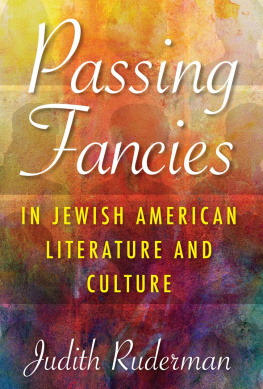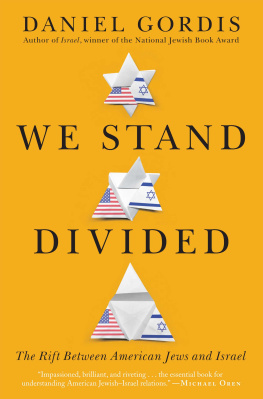For my parents, who raised me to be so proud to be Jewish, and for Neil, who is not Jewish but with whom I am so proud to build a Jewish home, and in loving memory of my grandparents, Alvin and Jacqueline Tamkin. I know you would have disagreed with so much in this book. I hope it would have made you proud, too.
There is no other people like the Jewish people, that talks about itself so much, but knows itself so little.
S. A NSKY
Everyone will sit under their own vine and under their own fig tree, and no one will make them afraid.
T HE B OOK OF M ICAH
D APHNA : Melody, I cant get a tattoo. Im Jewish? Its against Jewish law.
M ELODY : I know a Jewish person with tattoos.
D APHNA : Well theyre wrong.
J OSHUA H ARMON , B AD J EWS
Contents
W HAT DOES IT MEAN to be a Bad Jew?
The question is not a new one. Many Jewsat least many Jews I have known and loved or known and not lovedthrow the term at and against one another. You can be called a Bad Jew if you dont keep kosher; if you dont go to temple often enough; if you dont go to or send your children to Hebrew school; if you enjoy Christmas music; if you date or marry a non-Jewish person; if you dont call your mother often enough. The list goes on.
In the course of writing this book, when I asked American Jews what comes to mind when you hear Bad Jew? I got answers varying from someone who casts Jewishness aside and sees it as having no value to someone who rejects the connection between Jewishness and Zionism. I heard that a Bad Jew is someone who fails to hold Jews and Judaism to a high moral standard. Stephen Miller, for example, the former Trump official who crafted and pushed for the implementation of much of the administrations far-right immigration policy, was considered a Bad Jew by many who felt he wasnt living up to Jewish values. Others said a Bad Jew is someone whose conception of Judaism doesnt have applications to the wider world; someone who clings to outdated notions of how to talk about other Jews. Rebecca King, a Los Angelesbased chef who runs The Bad Jew, a restaurant that sells pork-strami, said that the phrase makes her think of Jewish kids running around who just want to eat bacon. The most common answer I got was, When I think of a Bad Jew, I think of myself.
For years, if asked this question, I, too, would have given that answer: that it was me, that I was what I thought of as a Bad Jew.
The issue of what it means, or doesnt, to be a Good Jew or a Bad Jew is particularly fraught at this moment in US history. American Jewish institutions are saying one thing; American Jews at large say another. The demographics of American Jews are changing as are American Jewish politics.
And so there is, at the time of writing, a debate over who gets to speak for American Jews and who gets to claim American Jewishness. Is there a single American Jewish community? Or many American Jewish communities with competing values? What does it actually mean to be an American Jew? And if we dont know, why does the label bring with it so many unspoken assumptions about how a person is and should be?
The concept of American Jewishness is one of identity (I am an American Jew) and belonging (I am accepted as an American Jew by other American Jews). These two concepts can run into each other. What happens when one, or many, identify as American Jews but in a way that is unfamiliar or even unacceptable to others who also identify as American Jews? There are several million people who identify as American Jews. But that doesnt mean they all identify with one another. And it doesnt mean they all accept one another. There may be people who will read this book and decide that I am not really an American Jew. What do I do with that? What do they?
The conflict between American Jews was salient in the years that I was thinking of, and finally actually writing, this book. As with much in the United States today, this was at least in part because of Donald Trump.
Over the course of his administration, President Donald Trump worked closely with Israeli prime minister Benjamin Netanyahu, stopping aid to Palestinians and moving the US embassy in Israel from Tel Aviv to Jerusalem.
Meanwhile, liberal Jewsthe majority of American Jewish votersnoted that American Jews have a range of opinions on Israel, and argued that Trump was enabling antisemitism at home, which was decidedly bad for Jews.
Some leftist Jews, for their part, argued that the term antisemitism had been weaponized by the political Right and warped beyond recognition,
The conversation of what role Israel should play in American Jewish politics, and what role American Jews should play in Israeli politics, was also changing. Some Jewish groups present themselves as though they are speaking on behalf of all Jews, or at least in favor of what is best for and in the interest of American Jews. But who, here, is the Bad Jew? Is it the American Jew who speaks against Israeli policy? The American Jew who remains muted on antisemitism because of Israel? The American Jew who purports to know what is best for other American Jews?
The shift both seems sudden and is years in the making. A decade ago, in 2011, Ben Shapiro, a conservative political commentator, wrote a tweet that read, The Jewish people has always been plagued by Bad Jews, who undermine it from within. In America, those Bad Jews largely vote Democrat.
Shapiro was taking the trope of the Bad Jew and mapping it onto the American political spectrum. In this telling, the right kind of Jew regularly attends temple and cares first and foremost about Israel. Since the vast majority of American Jews vote for Democrats and have for decades, he was denouncing the vast majority of American Jews as Bad Jews. The Trump years only made this paradox more pronouncedmost American Jews did not support him for president, but some of the loudest and most prominent voices were claiming he was good for the Jews.
Over the past several years, the idea of what role American Jews could play as politicians and political actors has changed, too. Two Jewish menMichael Bloomberg, the billionaire ex-mayor of New York City, and Bernie Sanders, the Brooklyn-born Socialistran for president, two different paradigms of American Jewish identity, the financial powerhouse and the rabble-rouser, standing on the primary debate stage.
I would argue that the fact that we are in a time of change and conflict and challenge has thrown many American Jews off-balance. Things are not as they were. But that, in turn, means there is an opportunity to think about what things could be.
American Jews debate what it means to be Jewish in the United States. But we also disagree on what constitutes a threat to American Jews.
Antisemitism, sometimes called the oldest hatred, is defined as the hatred of or prejudice against Jewish people. I personally believe, looking historically and presently at antisemitic conspiracies, be they that Jews caused the Black Plague or Jews control the worlds economy or Jews are orchestrating protests on the streets of the United States, that it would perhaps be more accurate to say that antisemitism is the conviction that Jews are forever foreign or alien to whatever population they happen to be in, and often have designs on corrupting that population.
The term itself goes back to the nineteenth century, Many of the tropes that we, today, think of as antisemiticthat Jews have outsize influence over society or even control the world, or that Jews are greedy and obsessed with money and run financial systems, or that Jews are trying to bring about the downfall of a country or nation or (before the advent of nations) communitiesgo back hundreds of years, too. Take, for example, the Spanish Inquisition, which began in the fifteenth century and resulted in the expulsion of Jews. And though the intensity of antisemitism has ebbed and flowed at different times and in different places, it has never fully abated. And indeed, Jewish immigration to the United States peaked as a result of antisemitism in Europe in the late nineteenth and early twentieth centuries.
Next page
